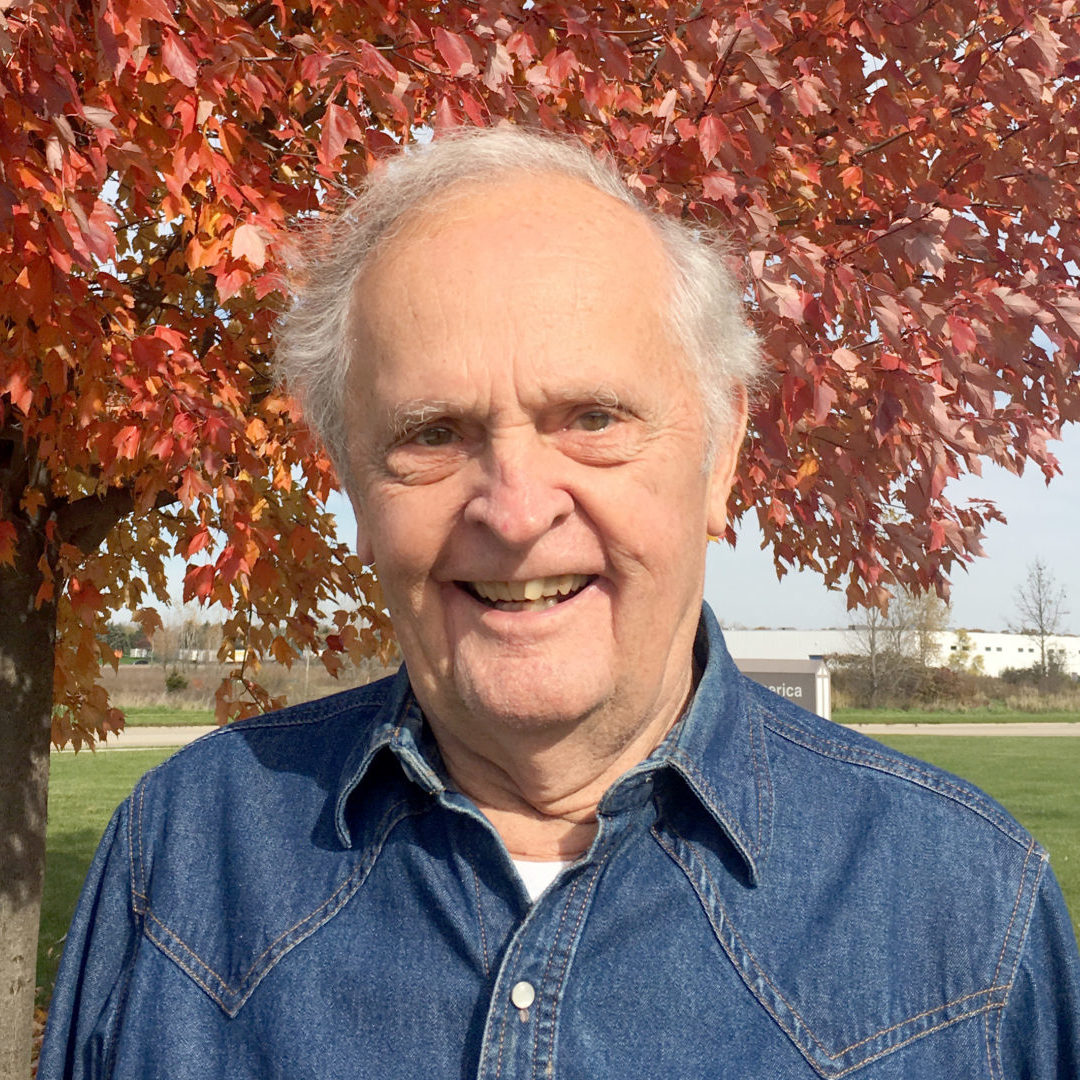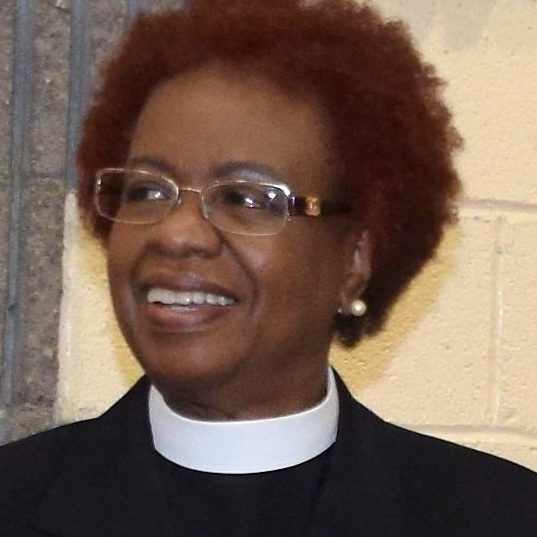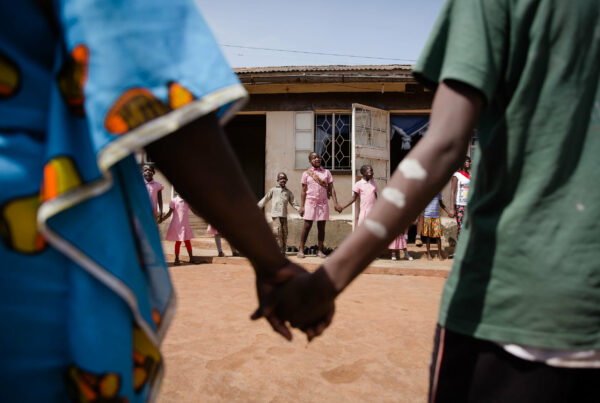“Mass incarceration is like an octopus. Its tentacles reach far and wide, extending deep into every aspect of a person’s life,” says Dr. Patricia Sealy, pastor of Mott Haven Reformed Church. “These are people like you and I, and their families are like our families, but someone they love has been locked away from society. That has a big impact on them, but they often don’t ask for what they need because of the shame and stigma.”
Sealy and her church are among a growing group of churches who are ministering to the millions of people impacted by incarceration. Some focus on building Christ-centered relationships with people who are still behind bars, and others aim to help people transition back into society when they get released. Still others strive to support families and advocate for a more just prison system.
Here are just a few of the ways people and churches are responding to mass incarceration in ministry.

Vern Hoffman started a letter writing project
First Reformed Church, Grandville, Michigan
“Retired” pastor Vern Hoffman is helping change the story of mass incarceration at 85 years old. He helped start a campaign to write letters to more than 200 people in prison and a project that invites churches to become “stations of hope,” churches where people who have been in jail or prison are welcome. “We now have over 50 churches who say they want to be stations of hope,” says Hoffman. He also works closely with other partners in West Michigan, such as 70X7, which specializes in helping people who come out of prison find jobs. “I’ve seen people find the Lord while incarcerated and come out completely changed. But once incarcerated, a person is labeled for life. Even though they serve their time, it’s like they are never done paying the price,” says Hoffman. “If Christians are concerned with justice, we need to do some major work transforming this.”

Patricia Sealy helps children with incarcerated parents
Mott Haven Reformed Church, Bronx, New York
Rev. Dr. Patricia Sealy started a ministry called Children’s Haven: A Place of Healing & Hope, which focuses on “disrupting the intergenerational cycle of incarceration and the school-to-prison pipeline,” says Sealy. “Children of incarcerated parents need a safe place and they need to feel like they belong.” Children’s Haven offers afterschool tutoring, creative arts, healing circles, faith formation, and other support services. They also offer a parent engagement program, a support group, and anger management training for caregivers. Collaboration with community organizations to advocate for systemic change is essential. “The U.S. has 5 percent of the world’s population and 25 percent of the world’s incarcerated population,” says Sealy. “This impacts all of us, as an issue of justice that we read about in Scripture. Support can be as simple as collecting clothes for people returning from prison or babysitting so a caregiver can have relief.

Bill Stimer mentors men who are in prison
Christ Memorial Reformed Church, Holland, Michigan
Bill Stimer will be the first to tell you he’s no biblical scholar, but he does have a ministry. Through Crossroads Prison Ministries, he serves as a mentor to five men who are in prison, writing them letters and studying the Bible with them. “The only way for prisoners to get back into society successfully is for people on this side of the fence to love and reach out to them with kindness,” he says. Stimer gets so much joy out of the relationships he is building that he finds himself writing letters to the prisoners in between lessons. “If we made a bad decision and were behind bars, I think we would be desperate for something like this, and I think the church has a responsibility here. The Bible speaks to that through Paul’s letters. It’s clear our Lord loves the people in prison, and I think we need to love them, too,” he says.
Dawn Ravella helps people transition from incarceration back into society
The Reformed Church of Bronxville, Bronxville, New York
Dr. Dawn Ravella started Coming Home, an 18-week program that helps people transition from incarceration back into society. Returning citizens all get a mentor from the church and gather for a weekly dinner and reflection time. Each group chooses a systemic issue that they care about, such as housing or postpartum depression, and works together to advocate for change. Returning citizens also take classes, often led by members of the congregation, on different life skills. The rate of recidivism—committing another offense—among Coming Home graduates is close to zero. Ravella is amazed by the way she sees people turn their lives around. “I’m 52 years old,” Ravella says. “I watch people around my age come out of prison and start anew with such enthusiasm and gratitude. One guy applied for his Ph.D. and got in. I said, ‘Wow, you’re so amazing.’ He said, ‘You could do it, too.’ And I did.”
Kristin and Eric Coleman spend Thursday nights at a juvenile detention center
Christ Community Church, Lemont, Illinois
“One of the most shocking things for me the very first time I went into the prison—looking at their eyes, they’re really just kids in lock-up who didn’t have the same opportunities I had growing up, and they’re suffering for it,” Kristin Coleman says. She and her husband, Eric, started a group in their church that spends Thursday nights with the young people at a juvenile detention center. They play games, break bread, and spend time in small groups and prayer. “Sometimes the kids just want to be heard. In a small group setting, they get attention they don’t get anywhere else,” says Kristin. “They want to tell their story. We tell them that they’re loved and that they’re heard, and that their life matters.” Eric adds, “We’ve seen dozens and dozens of kids come to Christ with us. The officers tell us the changes they’ve seen.”
Peter Watts helps people who have been incarcerated become leaders in the church
The R.O.C.K. Church, Los Angeles, California
The R.O.C.K. partners with World Impact to help gifted leaders who have been incarcerated become leaders in the local church. Peter Watts, who started The R.O.C.K., began this partnership when he transitioned to full-time ministry at World Impact a few years ago. Men who live in a transition home called the Martin House take seminary-level classes at World Impact’s Urban Ministry Institute that prepare them to lead in the church. Each week, they take turns opening worship at The R.O.C.K with a five-minute devotional and prayer taken from the Scripture of the day. “We believe that revival can come to the churches of America through seminary-trained, eager, and talented men and women who have endured the hardships of prison life,” says Watts. “They are ready to come back to communities where they were once a liability in order to bring the redemption they have experienced through the gospel of Jesus Christ.”
Grace Ruiter co-founded Faithward and oversaw its growth from a small blog to a ministry that reaches 100,000-200,000+ people each month. She has been asking too many questions ever since she started talking, and she has no plans of stopping now. Although her curiosity has challenged her faith at times, it's also how her relationship with God has grown to where it is today. You can get in touch with Grace at graceruiterwrites@gmail.com.




